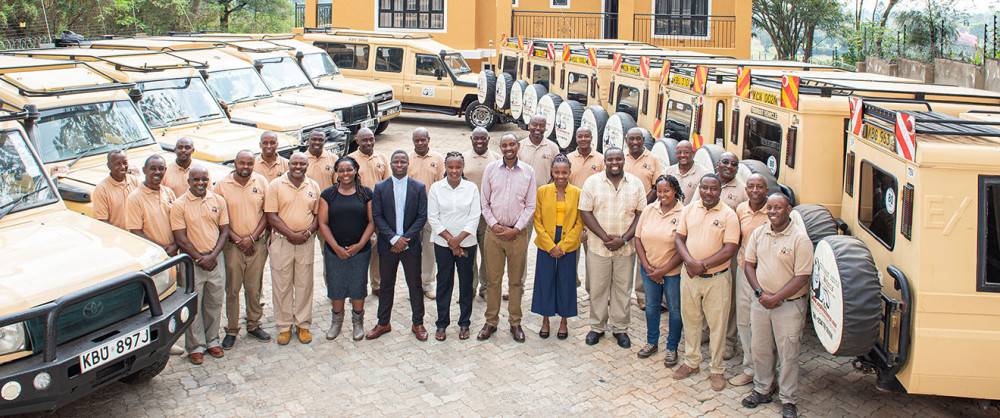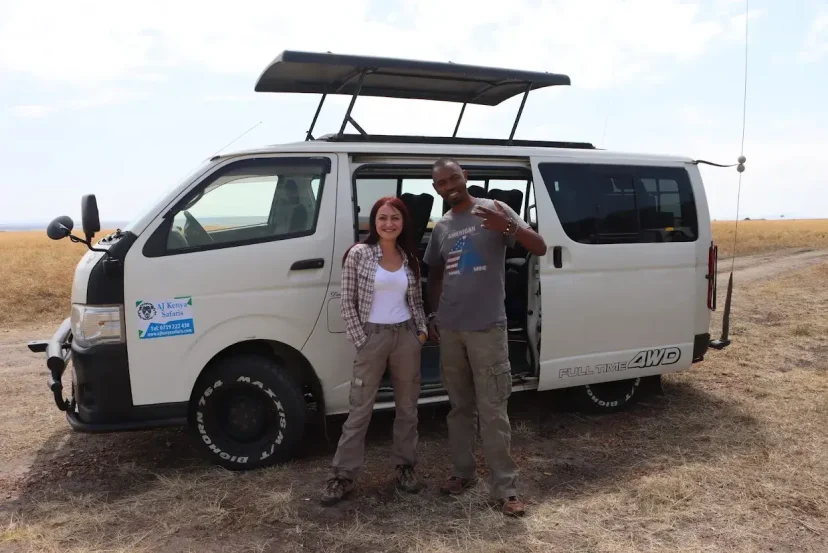Top Facts For Picking Devil666 Slot Sites
Wiki Article
What Safety And Security Aspects Do I Need To Be Aware Of When I Am Traveling In Mombasa, Kenya?
If you are planning a trip to Mombasa, Kenya, being conscious of security and safety aspects is essential for an enjoyable and stress-free journey. Here are some important points you should be aware of.
1. General Security
Be informed. Stay up-to-date with local news and any travel information issued by the country you are visiting.
Register at Your Embassy.
2. Health Precautions
Vaccinations. Make sure that you are up-todate with your routine vaccinations.
Mombasa is a malaria-prone region and, is best avoided. Utilize insect repellent and antimalarial medicines, sleep under mosquito nets and wear long sleeves in the evening.
Food and water safety. Drink water from a bottle and avoid eating ice. Be aware of street food.
3. Personal Safety
Avoid walking alone at night Be sure to stick to areas with good lighting and densely populated areas. Avoid walking on the beach or in areas that are not populated after it gets dark.
Secure your Valuables. Make use of hotel safety box for depositing valuables including passports and cash. Do not display expensive items such as electronic devices or jewelry.
Use Reputable Travel: Select licensed taxis and ride-hailing services or make use of the transportation that is provided by the hotel. Avoid unmarked taxis.
4. Local Laws and Customs
Dress modestly and respectfully Particularly when visiting holy sites. Be aware of local traditions.
Kenyan drug laws are strict and can be punished with severe penalties. Beware of any involvement in the illegal use of drugs.
Photography: Always ask permission prior to taking pictures of people, especially in rural areas or of government or military structures.
5. Beach and Water Safety
Safe swimming requires paying attention to local guidance on conditions and currents. Be sure to use designated swimming areas.
Marine Life: Be mindful of marine animals like jellyfish and Urchins. When walking on a beach, you should use the proper footwear.
6. Crime Prevention
Petty Crimes. Bag snatching, or pickpocketing is possible, especially in areas with a lot of people. Stay vigilant and keep your possessions close to you.
Scams: Beware of strangers offering overly extravagant assistance or offers that appear too appealing to be real. Make sure to use licensed tour operators.
Emergency Contacts: Know the emergency numbers for your local area such as Police (999), Fire (999) and Ambulance (999). Contact information for the embassy or consulate of your nation should be kept handy.
7. Natural Hazards
Weather: Mombasa experiences a tropical climate. The possibility of heavy rainfall and flooding can occur, particularly during the rainy season. Weather forecasts are vital.
Sun Protection: Use sunscreen, put on a hat and stay hydrated to protect against heat exhaustion and sunburn.
8. Travel Insurance
Comprehensive coverage. Make sure that the travel insurance you purchase includes coverage for emergency medical situations, theft, and loss, as well interruptions to travel. Check that the policy you are purchasing includes protection for all activities, like water sports.
If you think about these security and safety considerations, then you can have a much more enjoyable time in Mombasa. View the top kenya tours and safaris Wasini Watamu for website recommendations including kenya safaris and tours, travel & tours company, safari a nairobi, kenya holiday packages, tour agents in kenya, tours and travel company in kenya, kenya tours and travel, mombasa tour companies, kenya tours and travel, mombasa tour packages and more.

What Cultural Considerations Should I Be Aware Of Prior To The Start Of A Holiday In Mombasa?
To ensure respectful interactions with locals and improve your travel experience it is essential to be culturally sensitive when you are on vacation in Mombasa. Here are a few important things to consider.
1. Respect Local Dress Codes
Mombasa's Muslim number is substantial. In public areas, religious locations, and areas of the neighborhood, it is crucial to dress in a modest manner. This means that you should be sure to cover your shoulders, chest, knees, and legs.
Beachwear - Swimwear can be worn at the beach, but you should wear a hoodie when you go to restaurants or shopping in the vicinity.
2. Religious Sensitivity
Going to Mosques: If you wish to visit the mosque, you must ask permission first, and dress appropriately. Hairdressers should cover their heads and take off shoes.
Prayer Times: It is important to keep track of the five times for prayer each day and respect them in them, especially in the vicinity of an Islamic mosque.
3. Photography Etiquette
Permission is always required before taking photos, particularly in rural areas and traditional settings. Some people may not be comfortable or believe it's an intrusion.
Restricted Areas: Avoid taking photographs of places that are considered to be sensitive like military installations, government buildings, and other cultural sites where photography may be prohibited.
4. Social Interactions
It is essential to treat people with respect. Swahili greetings include "Jambo". Handshakes are generally accepted by men and women, for Muslim women, it is polite to wait for the hands to be extended first or salute verbally.
Personal Space: Respect personal space and be mindful of physical contact, especially with the opposite sex in conservative settings.
5. Cultural Norms & Taboos
Public Displays of Love: They are frowned on.
Left Hand Use According to tradition, the left hand is considered unclean. Make use of your right hand when eating, greeting, and exchange of cash or goods.
Feet: Showing your soles or pointing at anyone by your feet can be considered disrespectful.
6. Language and Communication
Basic Swahili Learn some basic Swahili phrases will help you establish rapport and show respect to locals. The most popular Swahili phrases include "Asante" meaning "thank you", and "Habari" meaning "How do you feel?" ).
Politeness. Engage in conversation with respect and patience. Kenyans expect courteous and respectful interactions.
7. Respect for Local Customs
Traditional Practices: Respect the customs and rituals of the past. If you have been invited to a local celebration, be aware and respect your hosts.
Bargaining: In markets and local shops there is a lot of bargaining. Do so with good humor and respect. It's a custom of the community rather than an aggressive one.
8. Alcohol and Smoking
Alcohol is available, but it is recommended to consume it discreetly in areas dominated by Muslims. Avoid public intoxication.
Smoking is usually not permitted in public areas. Smoking is permitted in designated zones.
9. Environmental Respect
The littering problem - Beware of littering and dispose of waste properly. Take care to respect wildlife habitats and natural areas.
Conservation: Respect the local wildlife, habitats and conservation efforts. Avoid buying products that come from endangered species.
10. Helping Local Communities
Local Businesses: Help local business, artisans and markets to positively contribute to the local economy.
Responsible Tourism: Choose sustainable, community-based tourism options that will help the local community.
These guidelines on cultural sensitivity can help you have a an enjoyable and respectful experience in Mombasa. They also enhance your appreciation and understanding of the local culture. See the top rated park funzi for site examples including afri safari, trip tour companies, safari trips in kenya, travel tours in kenya, safari company kenya, kenya safari holiday, safari company kenya, mombasa beach kenya, african safari excursions, africa in kenya and more.

What Environmental Responsibility Should I Be Aware Of During My Holiday In Mombasa Kenya?
If you are planning a trip to Mombasa, Kenya, being eco-friendly is essential to protect the natural beauty and biodiversity of the area. Here are a few important environmental responsibilities to consider:
1. Sustainable Accommodation
Eco-Friendly Hotels: Choose accommodations that practice sustainability. You can look for certifications from Eco-Tourism Kenya and other eco-labels.
Participate in the hotel's initiatives to save water. Reuse linens, towels and towels. Also, turn off the lights and air conditioner when they're not needed.
2. Responsible Wildlife Viewing
Be respectful of wildlife and stay away from them in order to prevent disturbing. Follow the directions given by the guide.
Avoid feeding animals. Feeding wildlife can disrupt their diet and behavior.
Leave No trace. Do not litter the wildlife parks or reserves. Bring all garbage with you and dispose of it in a proper manner.
3. Plastic Reduction
Reduce the use of plastics by using single-use. Keep a water bottle in your bag or bag that is reusable, as well as utensils.
Local initiatives are important Participate in beach cleanups, and aid organizations that work to reduce the amount of plastic pollution.
4. Water Conservation
Mombasa is suffering from water shortage. Showers should be shorter, and taps shut off when not being used.
Utilize eco-friendly and biodegradable toiletries: To minimize water pollution Use biodegradable and eco-friendly toiletries.
5. Energy Conservation
Reduce Energy Consumption: Limit the use of air conditioners and unplug electronic devices when not in use.
Encourage Renewable Energy Select accommodation and tour operators that make use of renewable energy.
6. Sustainable Transportation
Public Transport: Reduce your carbon footprint whenever you travel by public transport such as buses, matatus and other forms of public transport.
Think about eco-friendly alternatives like renting a bicycle or jogging short distances. Some places offer eco-friendly taxis.
7. Supporting local economy
Support local businesses: Contribute to the local economy by buying food, souvenirs, and crafts from local vendors.
Fair Trade: Purchase items with fair trade certifications to ensure that the producers in your area are fair compensated.
8. Environmental Education
Learn and Share: Educate yourself about the local environmental issues and conservation initiatives. Share what you learn with your friends and family members to spread awareness.
Respect local cultures : Be aware of and respect local customs, practices and beliefs that are related to the conservation of the environment.
9. Marine Conservation
If you're diving or snorkeling, be sure to avoid touching coral reefs. Make sure you use sunscreen safe for reefs to protect marine life.
Do not throw trash into the sea. Join marine conservation programs or support them.
10. Ethical Souvenirs
Beware of Wildlife Products. Do not purchase products from endangered species. For example, ivory and tortoiseshell.
Sustainable Materials - Select souvenirs made with recycled or recyclable materials.
11. Participate in Conservation Activities
Think about becoming a volunteer engaging in local tourism or conservation projects.
Donate to local NGOs. Donate to local NGOs, as well as organizations dedicated to protecting the environment.
12. Responsible Travel practices
Small group sizes are recommended in order to lessen the impact on the environment.
Eco-Tours. Choose tour operators committed to sustainable practices, and follow eco-friendly methods.
By keeping these environmental responsibilities in mind, you can help preserve Mombasa's natural resources, and ensure that the beauty and diversity of the region is preserved for future generations. View the top mombasa city tour for site info including kenya beach mombasa, kenya beach mombasa, luxurious african safari, luxurious african safari, safar kenya, kenya tours and travel, facts about kenya, african safari africa, safari trips in kenya, kenya africa travel and more.
